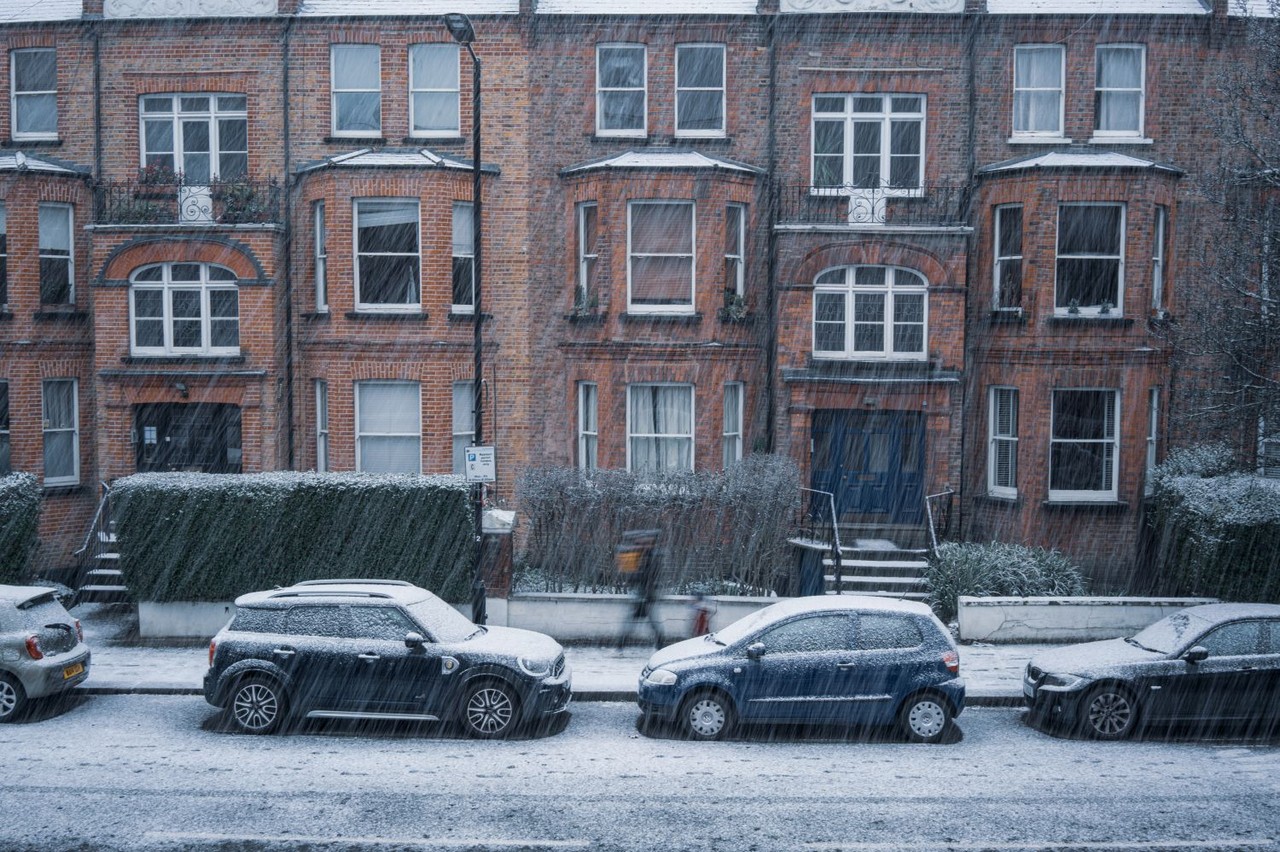If you’re leaving your residential or commercial property vacant over the wintertime without taking the needed safety measures, this can create a variety of concerns, consisting of icy pipes and damp. And if there’s nobody to watch on the residence, these concerns can swiftly grow out of control right into significant ones, creating resilient and pricey residential or commercial property damages.
So what can you do to stop this? Review our blog site on wintertime suggestions for vacant residential or commercial properties to figure out exactly how you can protect against these concerns.
1. Maintain your home heating on reduced to stay clear of ruptured or icy pipelines
Picture resource: Reinaldo Sture through Unsplash
Among the most effective points you can do to prevent your pipes from cold or breaking in a vacant residential or commercial property is to maintain your home heating on reduced. There are 2 alternatives readily available for this: either you can maintain your home heating on throughout the day and evening with your thermostat at around 15 levels celsius, or you can establish it to find on for a couple of hours in the early morning and a couple of hours during the night.
It is very important to keep in mind that several insurance policy companies will certainly state that you have to maintain your home heating on continually in order to keep a temperature level of 15 levels celsius.
Is it a lot more energy-efficient to leave your home heating on throughout the day or run it for a couple of hours every day?
This has actually been a fiercely discussed subject for years, and the basic agreement is that it depends upon the residential or commercial property. If your home is improperly shielded and you leave your home heating on throughout the day, your central heating boiler will certainly need to strive to keep the appropriate temperature level.
Also, in the wintertime when the temperature level exterior is cooler, warmth loss constantly happens regardless of exactly how well shielded your residential or commercial property is, so you may discover that also if your residential or commercial property is well shielded, it has a hard time to keep the preferred temperature level.
You may intend to examination which technique is a lot more power effective prior to you leave your residential or commercial property vacant by attempting each technique and taking meter analyses at the start and end to see which is much better.
2. Think about draining your pipelines
Picture resource: inanc avadit through Unsplash
If you would certainly choose not to leave the home heating on in the residential or commercial property, an option is to drain pipes the pipelines of all water. Several insurer approve this as an option to maintaining your home heating on and will certainly include this as a regard to contract if you do not intend to maintain your home heating on while you’re away.
As pipelines ruptured when the water inside them ices up and for that reason increases, this makes it much less most likely that your pipelines will certainly obtain harmed.
Remember that this isn’t a fail-safe technique to stop water damages as water may stay in various components of your pipes that can not be drained pipes. There is additionally the included threat that condensation will certainly begin to create without the home heating on, which might cause damp and mold concerns.
In order to do this, transform the water off at the keys and drain pipes the water supply, consisting of any kind of water containers, pipelines and device.
3. Inspect your roofing and seamless gutters prior to you leave
There are a variety of points to think about prior to you leave the residential or commercial property vacant over the wintertime. As an example, you’ll intend to remove your seamless gutters of fallen leaves to stop an accumulation or drooping seamless gutters, both of which might create flooding or various other water damages.
You’ll additionally intend to examine the residential or commercial property’s roofing for any kind of missing out on or harmed ceramic tiles, which might create more damages in poor weather condition. These ought to be changed prior to you leave your residential or commercial property uninhabited.
If your residential or commercial property has a thatched roofing, you may intend to tidy and tighten it prior to you disappear. And if your residential or commercial property has a level roofing, you may intend to obtain it kept prior to you disappear. You’ll additionally intend to make certain that, if there is any kind of hefty snowfall or a negative tornado while the residential or commercial property is vacant, you send out somebody to examine the roofing and eliminate any kind of snow or particles from it as refraining so can create damages.
4. See to it you’re not motivating parasites to nest
Picture resource: Shane Rounce through Unsplash
A vacant residential or commercial property is especially eye-catching to parasites over the wintertime so it is very important to protect versus them. It’s an excellent concept to examine the border of your residential or commercial property to make certain there aren’t any kind of busted or broken air blocks that might be made use of by rats and various other parasites. Also, examine the within your residential or commercial property for any kind of openings or gain access to paths that might be made use of by parasites.
See to it to get rid of any kind of rubbish from your residential or commercial property– both within and outdoors– as refraining so can urge parasites to nest.
5. Establish your lights so they activate instantly
You may have currently established this up, yet as days are much shorter in wintertime you’ll possibly require to adjust the timer setups on any kind of automatical lights. At the elevation of wintertime, it can obtain dark really early– the wintertime solstice sees the sunlight setup prior to 4pm. Because of this, you may intend to alter the timer so it transforms the lights on at around 4:30 pm to 5pm throughout the cold weather.
Review our blog site for even more suggestions on exactly how to maintain your residential or commercial property secured when it’s empty.
6. See to it you have actually obtained empty residence insurance policy in position
An empty residential or commercial property is a lot more prone to a vast array of concerns, so it’s an excellent concept to have empty home insurance policy in position. This varies from routine residence insurance policy as it aids safeguard your residential or commercial property versus the specific dangers entailed with leaving your home vacant.
At Adrian Change, we provide customized empty home insurance policy to match your requirements and your spending plan. Our home insurance policy clients conserved approximately 31% in 2021 when getting a plan with us– see just how much you might conserve by providing us a telephone call on 0800 081 0777.





